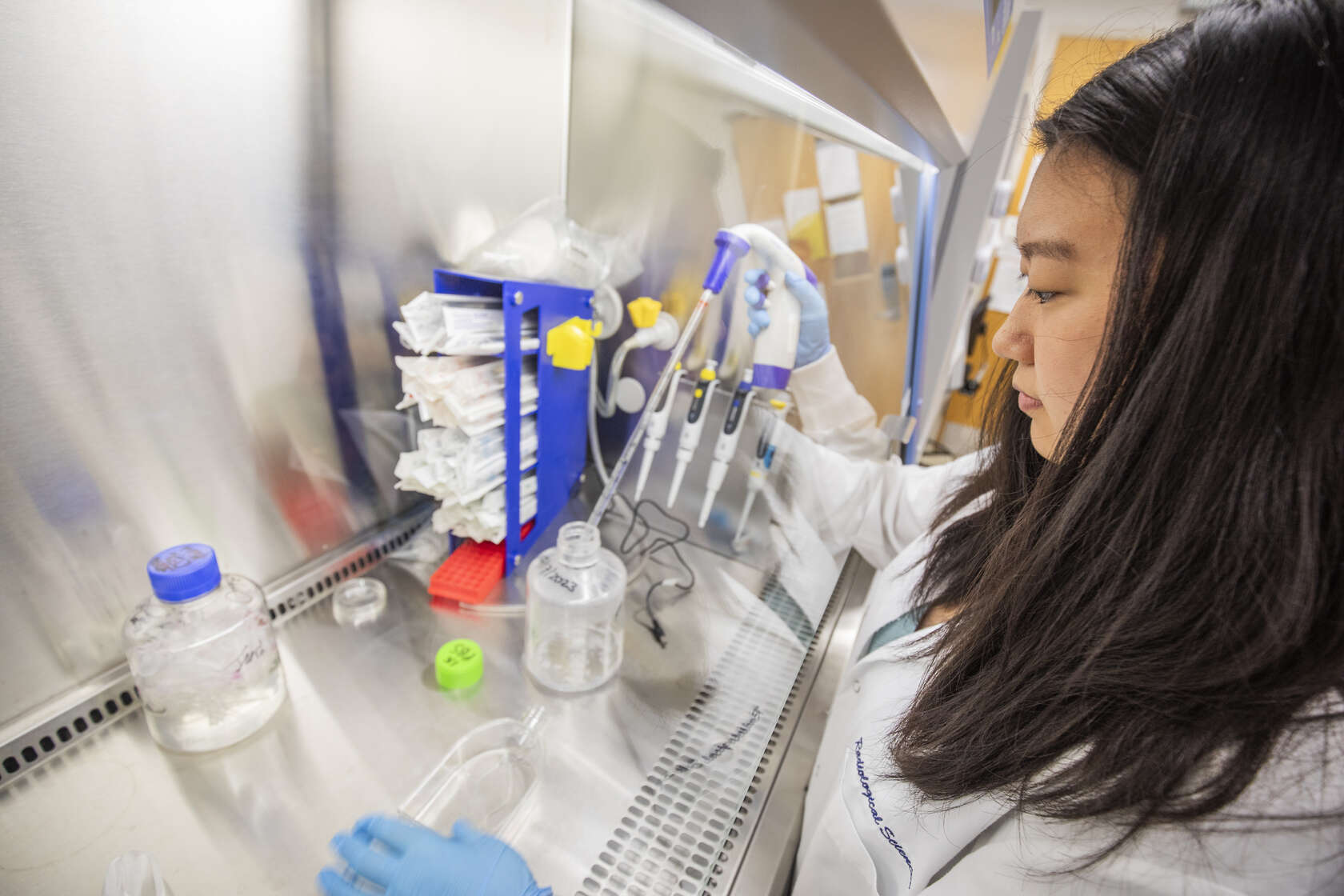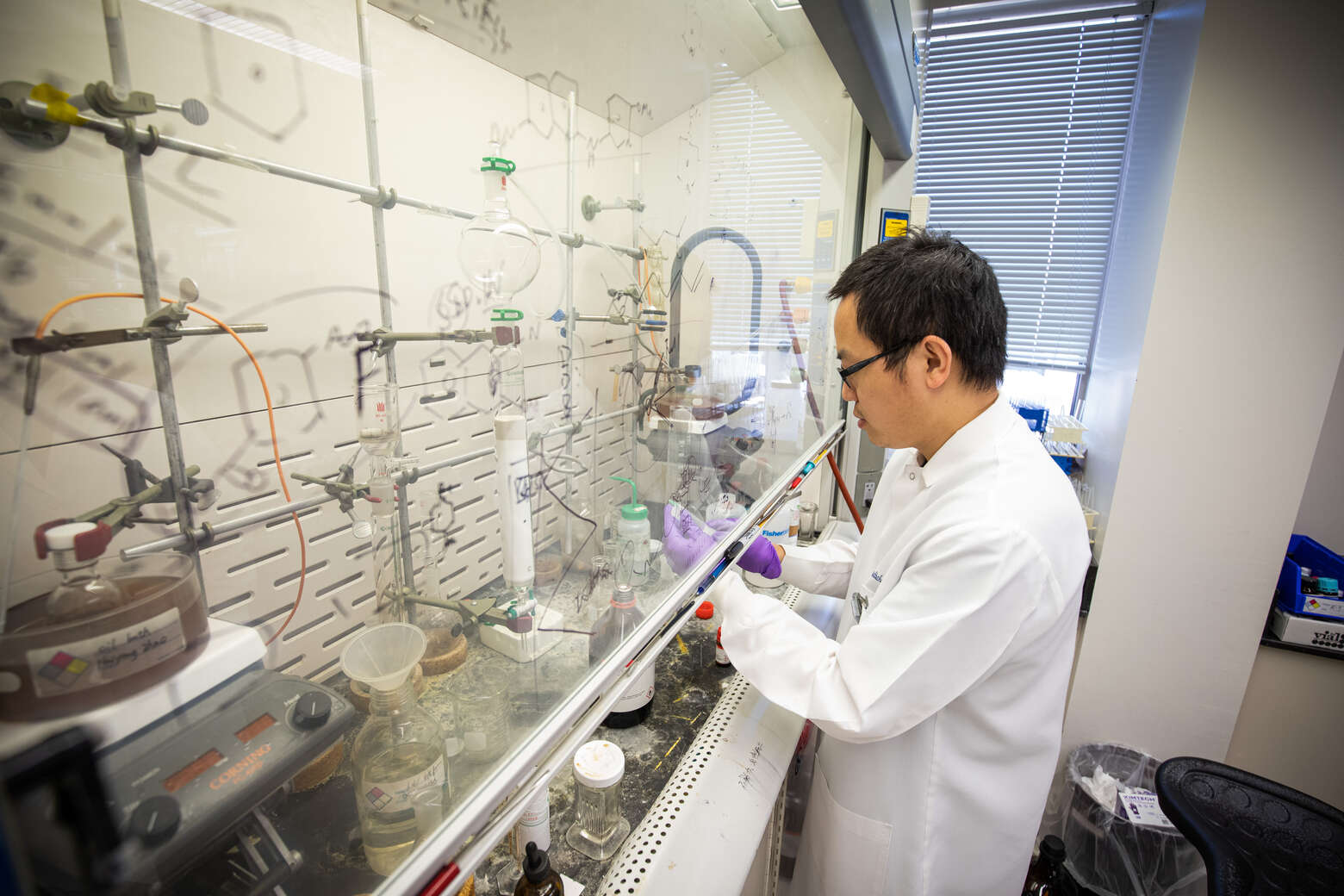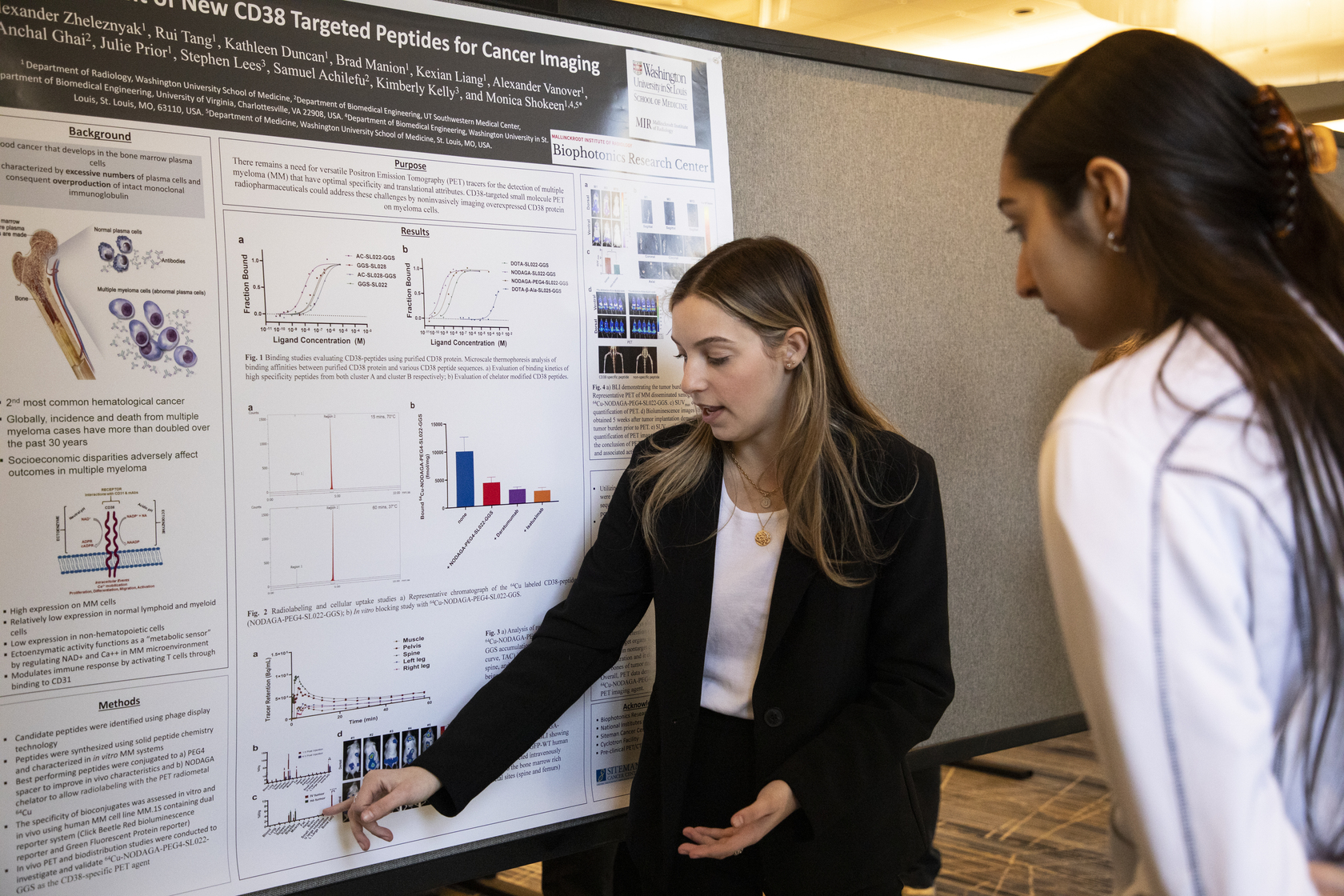MIR Receives Postdoc Training Grant in Radiopharmaceutical Sciences

Mallinckrodt Institute of Radiology (MIR) at Washington University School of Medicine in St. Louis will spearhead a multidisciplinary initiative to train the next generation of positron emission tomography (PET) molecular imaging scientists. Funded by the National Institute on Aging, postdoctoral scientists trained through this program will design, develop and translate diagnostic agents for imaging of neurodegenerative diseases and Alzheimer’s disease and related dementias.
Notably, scientists training at the intersection of neuroscience and radiopharmaceutical sciences are rapidly declining nationwide. With a clear shortage of radiopharmaceutical scientists across the board in the U.S. workforce, the T32 postdoctoral training grant “Translational Imaging in Radiopharmaceutical Sciences” (TIRS) would contribute to addressing this critical shortage of radiopharmaceutical scientists.
TIRS will bring leading scientists from across Washington University — including scientists in the radiological sciences division of MIR, Knight Alzheimer’s Disease Research Center, Molecular Imaging Center, Institute of Clinical and Translational Sciences, Cyclotron Facility and PET Radiotracer Translation and Resource Center — on a single platform. All trainees will be provided multidisciplinary dual-mentorship (one mentor in basic science and one physician-scientist), with mentors possessing a range of specialties — from chemists to immunologists, neurologists to radiologists.
The program — led by Vijay Sharma, PhD, Tammie L.S. Benzinger, MD, PhD, and Zhude Tu, PhD — ultimately aims to prepare molecular PET imaging research scientists to transition into faculty positions nationwide, supporting decades of service to the field of diagnostic nuclear medicine in neuroscience.





